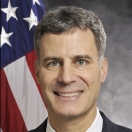
This year's Economic Report of the President describes the progress we have made recovering from the worst economic crisis since the Great Depression. After years of grueling recession, our businesses have created over six million new jobs. As a nation, we now buy more American cars than we have in 5 years, and less foreign oil than we have in 20 years. Our housing market is healing, and homeowners and consumers enjoy stronger protections than ever before. But there are still millions of Americans whose hard work and dedication have not yet been rewarded. Our economy is adding jobs, but too many of our fellow citizens still can't find fulltime employment. Corporate profits have reached all-time highs, but for more than a decade, wages and incomes for working Americans have barely budged. As President Obama has said, "A growing economy that creates good, middle-class jobs–that must be the North Star that guides our efforts."
Although economics has long been called "the dismal science," it is more appropriately viewed as a "hopeful science." The right mix of economic policies and leadership can help a country to recover from a deep recession and point to the investments and reforms that will build a stronger, more stable, and more prosperous economy that works for the middle class. Conversely, government dysfunction or misguided fiscal policy can cause self-inflicted wounds to the economy. This year's Economic Report of the President highlights the progress that has been made in recovering from the deepest recession since the Great Depression, together with the policies that the Obama Administration is advancing to address the fundamental imbalances and threats that have built up for decades and that have created severe stress on the middle class and those striving to get into the middle class.
This Report reviews the progress of the ongoing economic recovery during 2012 and highlights the main goals of the President's economic agenda. These goals include strengthening the foundations of economic growth by investing in education, research, and infrastructure, and by fixing a broken immigration system through commonsense immigration reform; ensuring fairness for the middle class by reforming the tax code and health insurance system; and bolstering the economy's resilience to future challenges by addressing the dangers of climate change, moving toward energy independence, pursuing a balanced approach to deficit reduction, adding safeguards to the financial system, opening up new markets for U.S. exports, and equipping American workers to compete in the global economy.
Finally, given the importance of economic data in driving economic policy and in helping households and businesses to make sound decisions, this year's Economic Report of the President continues the tradition of highlighting areas where economic data have improved or could improve further.
To read the entire Report, click HERE.


